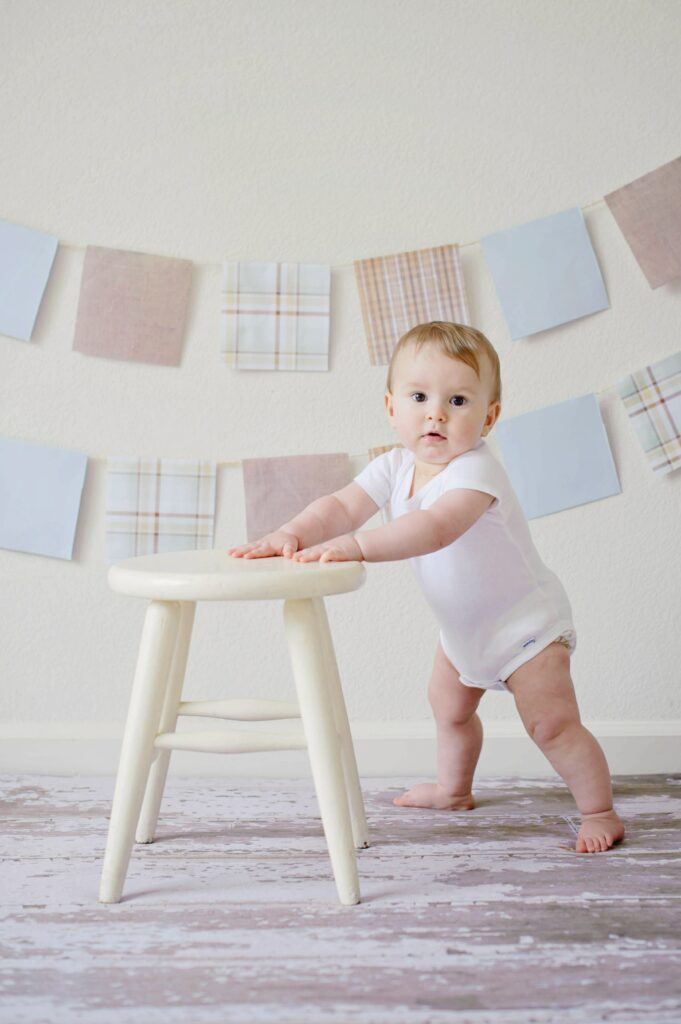Do you know that babies grow so much faster during the first year of their life? Their first year is one busy growing season where they suddenly grow in height and weight. It’s also an exciting time for us, parents! Just note that every child is different, so it’s hard to say when babies have growth spurts. Anyhow, here are some signs you have to watch out for and what you can do about it.
Baby Growth Spurts
Growth spurt is a time when you will notice a sudden growth in your baby not only in size but development as well. Some babies will have less noticeable spurt than other babies but if their growth is normal according to the growth chart, you can tell your baby is growing well.

What Happens During Baby Growth Spurts?
Have you noticed when suddenly your newborn starts to eat every hour? That even when you just fed him, your baby remains ravenous – still hungry? If it sounds familiar to you, well, your baby might be undergoing growth spurts!
Don’t worry. He is going to be okay even if he looks like he’s starving. This scenario will repeat four more times during their first year.
Growth spurts can happen anytime, but some expert says that it usually occurs during the second week, third week, sixth week, third month and the sixth month. And voila, by the end of the year, your baby will triple his body weight, outgrowing all his newborn outfits overnight!
Growth spurts tend to last two to three days. Sometimes, even as long as a whole week.
Signs of Baby Growth Spurts
Here are what to expect during a baby growth spurt:
- Your baby is eating nonstop
Buffet 24/7? That’s how your newborn experiencing growth spurt is treating feeding time. You will find them feeding more as if you didn’t feed them an hour ago. If you are breastfeeding, you will find that feeds would take longer than the usual time. That’s okay because the more often he breastfeeds, the more your baby stimulates milk supply to fit his growing needs.
- Your baby hits a developmental milestone
Aside from gaining weight, you will also find your baby hitting a developmental milestone. While their body grows, their brains also grow physically alongside it. This is also why a baby’s fontanelle or that soft spot is closed by age one.
Your baby might master a skill he’s been working on for a while. Maybe he can clap or grasp a toy after a growth spurt.
- Your baby changes his sleeping schedule
Either they are sleeping more or sleeping less. Just when you thought your baby is finally hitting a sleeping routine, he suddenly demands for more feedings at night!
Or, if you’re lucky, your baby decides to sleep more than usual. Sleep plays an essential role in the growth hormone so let them sleep. Hormones for bone growth are developed during sleep, so you might find them taller after a growth spurt. The good news is you can also take this opportunity to catch some sleep or do other things.
- Your baby is getting cranky
Imagine their tendons and muscles being stretched in their body. Babies might be experiencing “growing pains,” a sign of growth spurt. If they’re a little bit more fussy, irritable, or clingy to you, it is a sign that they’re feeling extra hungry or tired. This mood would usually regulate within a few days after a period of growth spurt.

How to Cope with Baby Growth Spurts
Growth spurts can be overwhelming at the start, especially when you are breastfeeding. Here are some tips on how to handle your baby’s growth spurts:
Take care of yourself
You can help improve your milk production by eating regular meals where you get enough calories. Keeping yourself hydrated can also help a lot. This is the best time to get family and friends to help out with all the other chores at home while you feed your little monster.
If you’re a working mom, you might want to take some days off to relax and take the pressure off your shoulders.
Respond to your baby’s cues
Parents need to respond to your baby’s cues and provide him with what he needs. Follow their lead, may it be more milk, another morning nap, some quiet time, or maybe just cuddles.
Be patient
Fighting growth spurts will do nothing but make things worse. Keep in mind that your baby is hungry for a good reason, and your responsibility is to help him overcome by providing all the nutrients required for them to grow. They’ll stop getting cranky once their needs are met.

Extra Tip for Breastfeeding Moms
Take care of your breasts by massaging them to keep the tissue soft. Taking a warm shower or a bath can help too. Because of the increased number of feedings, your nipples may feel a little sore. I recommend wearing loose-fitting tops for more comfort.
Extra Tip for Formula-Feed Moms
Increase the number of feeds gradually during a growth spurt. If you will add an extra feeding, do it only during the growth spurt period or just a few days. If your baby spits up after feeding, it simply means they are getting too much formula, so watch out!
Have you experienced growth spurts with your baby? I’d love to know your experience. Feel free to share additional tips too!
Related post “Baby Monthly Milestones“, “ 3 year old developmental milestones“

